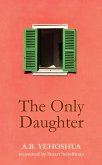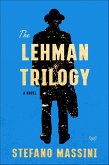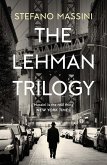Main Characters:
God: The omnipotent creator, guiding the discussion with wisdom and authority.
Jesus: The compassionate and wise teacher, advocating for love and forgiveness.
Abraham: The patriarch of monotheism, seeking unity among his descendants.
The Prophet Isaiah: The visionary prophet, offering insights and prophecies.
King Solomon: The wise king, bringing his knowledge of justice and governance.
Isaac and Ishmael: The sons of Abraham, representing different lineages but united in purpose.
Moses: The great lawgiver, emphasizing the covenant and divine law.
Mohammed: The final prophet of Islam, contributing perspectives on faith and community.
The Gathering
The novel begins with a divine call that brings together these revered figures. Each arrives in the celestial hall, greeted by God, who explains the purpose of their assembly: to discuss the Restoration of Israel and its implications for humanity.
The Dialogue's
The heart of the novel lies in the dialogues between these divine beings. Each character presents their perspective, drawing from their teachings and experiences:
Abraham speaks of the covenant and the shared heritage of his descendants.
Isaac and Ishmael discuss reconciliation and the healing of ancient divisions.
Moses emphasizes the importance of the law and the need for a just society.
King Solomon offers wisdom on governance and the role of a united Israel in promoting peace.
The Prophet Isaiah shares his visions of a restored Israel as a beacon of hope.
Jesus speaks of love, forgiveness, and the role of Israel in the broader context of humanity.
Mohammed contributes insights on the ummah (community) and the importance of mutual respect and understanding.
Mystical Visions
Interspersed with their discussions are mystical visions that reveal potential futures for Israel and the world. These visions are vivid and symbolic, highlighting the stakes and the divine plan.
The Consensus
Through their profound conversations and shared visions, the characters reach a consensus. They agree that the Restoration of Israel is not just a political or territorial issue but a spiritual and moral imperative. It must embody justice, peace, and a commitment to the welfare of all humanity.
Conclusion
The novel concludes with a renewed sense of purpose among the divine figures. They impart their collective wisdom to humanity, calling for a restoration that transcends borders and unites people in faith, hope, and love. As they depart, the celestial hall radiates with the promise of a brighter future, guided by divine principles and human cooperation.
Restoration of Israel is a thought-provoking and inspiring fantasy novel that invites readers to reflect on the profound connections between faith, history, and the quest for a better world.
Dieser Download kann aus rechtlichen Gründen nur mit Rechnungsadresse in A, B, CY, CZ, D, DK, EW, E, FIN, F, GR, H, IRL, I, LT, L, LR, M, NL, PL, P, R, S, SLO, SK ausgeliefert werden.









